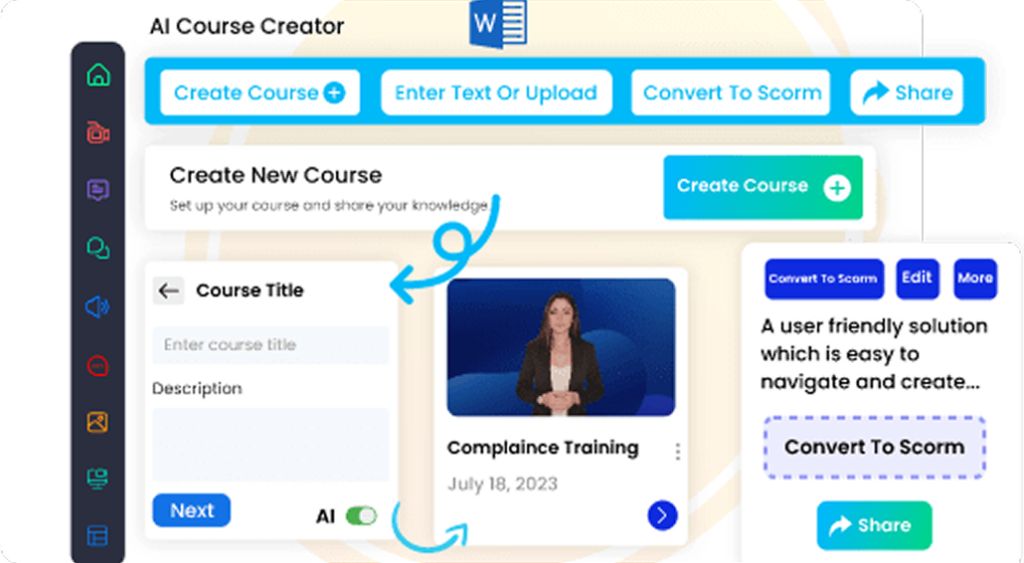Essential Leadership Skills for Effective Leadership: Developing Core Competencies
Effective leadership training is fundamental to organizational success, whether you’re an emerging leader or a seasoned executive. The foundation of strong leadership lies in mastering core skills such as communication, integrity, strategic thinking, and emotional intelligence. These competencies enable leaders to motivate teams, make informed decisions, and successfully drive change. In this comprehensive guide, we will explore how to develop and refine these critical leadership skills, backed by research and industry best practices, to elevate your leadership effectiveness and foster organizational excellence.
The Role of Communication in Effective Leadership
Why Communication is a Cornerstone of Leadership
Effective communication is widely recognized as the cornerstone of successful leadership. Leaders must convey their vision, expectations, and feedback clearly to foster understanding and motivate teams. Clear, transparent communication minimizes misunderstandings, boosts morale, and aligns efforts toward common goals. Without strong communication skills, even the most talented teams can struggle to achieve organizational objectives.
Developing Communication Skills
- Practice Active Listening: Fully concentrate on understanding others’ viewpoints, respond thoughtfully, and demonstrate genuine engagement. Regular check-ins and feedback sessions exemplify attentive listening, building trust and gathering valuable insights.
- Hone Clear and Concise Messaging: Use straightforward language, avoid jargon, and structure messages logically. Employ methods like STAR (Situation, Task, Action, Result) to enhance clarity in instructions and feedback.
- Utilize Multiple Communication Channels: Adapt communication styles to platforms—emails, video calls, in-person meetings—to promote engagement and retention. Employing diverse channels ensures messages reach stakeholders effectively.
Practical Examples
Implement weekly team updates, utilize visual aids during presentations, and solicit regular feedback to measure and improve communication effectiveness. These strategies improve clarity, foster openness, and ensure alignment across teams.
Building Integrity as a Leadership Foundation
The Importance of Integrity in Leadership
Integrity fosters trust, loyalty, and organizational legitimacy. Leaders acting with honesty and consistency serve as role models, reinforcing core values and cultivating a positive culture. Demonstrating integrity through transparency, ethical behavior, and accountability enhances credibility and stakeholder confidence.
How to Cultivate Integrity
- Practice Transparency: Share information openly about both successes and setbacks, creating an environment of honesty and trust.
- Uphold Consistency: Ensure your actions align with your words; reliability strengthens your integrity as a leader.
- Demonstrate Accountability: Own mistakes openly, take corrective actions, and learn from errors to set a positive behavioral standard.
Practical Strategies
Develop and communicate clear ethical standards, recognize and reward ethical behavior, and conduct regular ethics training to reinforce integrity within your teams.
Discover how our courses can align with your training goals and drive real results.
Learning Built Around Your Goals.
Schedule A DemoDeveloping Strategic Thinking Skills
The Significance of Strategic Thinking
Strategic thinking empowers leaders to anticipate future trends, allocate resources effectively, and create long-term value. It is vital in navigating complex, uncertain environments and fostering innovation. Strong strategic acumen ensures organizations adapt proactively rather than reactively.
How to Enhance Strategic Thinking
- Broaden Your Perspective: Keep informed about industry trends, technological advances, and competitive dynamics through continuous learning and market analysis.
- Engage in Scenario Planning: Develop multiple future scenarios and action plans to prepare for possible disruptions and opportunities.
- Foster Critical Thinking: Challenge assumptions, analyze data objectively, and evaluate options critically using SWOT analyses and PESTEL frameworks.
Practical Applications
Allocate regular strategic planning sessions, include diverse viewpoints by forming cross-disciplinary teams, and leverage data analytics to inform decisions. These practices help embed strategic thinking into daily leadership routines.
Cultivating Emotional Intelligence for Leadership Success
The Role of Emotional Intelligence in Leadership
Emotional intelligence (EI) is increasingly recognized as essential for effective leadership. It encompasses self-awareness, self-regulation, motivation, empathy, and social skills. High EI enables leaders to understand their emotions, manage relationships, and build trust—critical for motivating teams and managing change.
How to Develop Emotional Intelligence
- Enhance Self-Awareness: Reflect regularly on your emotions and behaviors; mindfulness and journaling foster this skill.
- Practice Empathy: Seek to understand team members’ perspectives and feelings to build stronger relationships.
- Manage Emotions Effectively: Develop techniques to regulate responses in stressful situations, maintaining professionalism.
Practical Tips
Use active listening to demonstrate empathy, identify your emotional triggers, and offer emotional support during organizational changes to strengthen your EI competencies.
The Interconnected Nature of Leadership Skills
These core skills—communication, integrity, strategic thinking, and emotional intelligence—are deeply interconnected. Mastery in one area enhances others; for example, integrity builds trust, which in turn improves communication. Developing these competencies holistically leads to well-rounded, effective leadership aligned with industry standards and best practices.
Action Steps to Develop Core Leadership Skills
- Conduct Self-Assessment: Use 360-degree feedback and leadership assessments to identify strengths and gaps.
- Set Targeted Goals: Define specific objectives like improving public speaking or practicing transparency.
- Engage in Continuous Learning: Attend leadership development programs, webinars, and workshops from reputable institutions.
- Seek Mentoring and Coaching: Partner with experienced leaders for insights and personalized guidance.
- Practice Regular Reflection: Review progress, refine strategies, and reinforce skill development.
- Apply Skills in Real-World Contexts: Lead initiatives or projects to practice and enhance core competencies.
Why Choose CogniSpark AI for Leadership Training?
CogniSpark AI empowers future-ready leaders by combining expert-designed leadership content with personalized learning through its built-in AI Tutor. Whether you’re building skills in communication, emotional intelligence, or strategic thinking, CogniSpark’s adaptive platform delivers role-based training tailored to individual leadership levels.
With an in-built authoring tool, organizations can quickly design or customize modules aligned with their unique goals—and since it’s compatible with any LMS, integration is seamless. From emerging managers to senior executives, CogniSpark AI turns leadership development into a measurable, continuous, and transformational journey.
Conclusion
Developing essential leadership skills—such as communication, integrity, strategic thinking, and emotional intelligence—is crucial for inspiring teams, navigating complexities, and fostering organizational excellence. By intentionally cultivating these competences, leaders can create a positive impact, build trust, and adapt to changing environments effectively. Take proactive steps today—engage in self-assessment, pursue ongoing learning, and practice applying these skills in real-world scenarios to ensure sustained leadership success and organizational advancement.
Explore Our eLearning Course Catalog
Access 100+ fully editable, SCORM-compatible courses featuring an integrated AI Tutor and an in-built authoring tool. Seamlessly compatible with any LMS, these courses are designed to elevate your training programs.
Explore Course Catalog






















